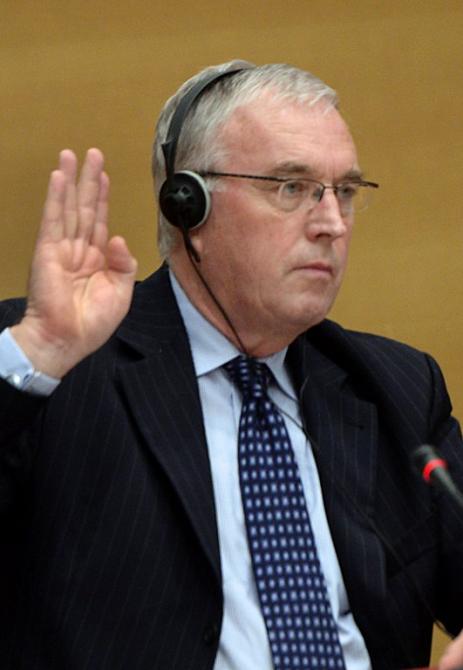McQuaid dossier compiled by investigators with US governmental agency experience, says Makarov
Leaked letter from Makarov to UCI Management Committee

Russian Cycling Federation president Igor Makarov has said that the dossier outlining allegations of corruption against UCI president Pat McQuaid and his predecessor Hein Verbruggen was compiled by two investigators with experience of working at United States governmental agencies.
In a letter obtained by Cyclingnews, Makarov wrote to his fellow UCI Management Committee members to explain the background and status of the dossier, and denied that he was responsible for leaking a summary of the dossier to the press last week.
“Along with other individuals (these persons prefer to remain silent for the moment) […] we decided that some researches should be made to figure out what was going on with the UCI leadership,” Makarov wrote in the letter, dated September 13th.
“We thus decided to mandate two well-renowned and independent investigators to supervise such research, both of them having a long record and extensive experiences with United States governmental agencies.”
McQuaid has denied the allegations and decried the leaked dossier as an example of “gangster politics” from Makarov, who is backing McQuaid’s opponent Brian Cookson in the forthcoming UCI presidential election. Makarov has dismissed the claim and he defended the integrity of the investigation in his letter to the UCI Management Committee.
“In order to avoid any doubts, we can ensure that the investigations strictly complied with all the laws and that no questionable means of investigation have been used,” Makarov wrote.
Makarov will be in attendance in Zurich on Sunday when both McQuaid and Cookson will address members of the Union Européenne de Cyclisme, including the 14 European voting delegates for the presidential election, at a special general assembly.
Get The Leadout Newsletter
The latest race content, interviews, features, reviews and expert buying guides, direct to your inbox!
After the investigators produced their report on McQuaid, the allegations were discussed by the UCI Management Committee in June, and McQuaid was later allowd to view the dossier. “Mr. McQuaid had the opportunity to read it and to discuss its content with the two investigators and eventually to make his comments,” Makarov said.
While McQuaid claimed that he wished the UCI Ethics Commission to investigate the matter, Makarov said that he had requested that the Ethics Commission instead appoint a panel of independent experts to consider the allegations in the dossier.
“I personally requested this Commission (in my letters dated 12 July, 30 July, 7 August, 29 August, 12 September 2013) to appoint a panel of independent experts to ensure it would act in an unquestionable independency and impartiality,” Makarov wrote. “Considering the fact that the investigations concerned directly the leadership of the UCI, the indepency [sic] of the Commission was obviously of the essence.
“In addition, as the Dossier encompasses several testimonies from people not willing to publicly appear for the moment, the question of the confidentiality of the investigations and the protection of the identity of the witness were also essential.”
Makarov said that the UCI Ethics Commission “systematically refused the proposal” and that, as a result, he had no choice but to refuse to hand over the dossier. “Should the above-mentioned conditions be eventually met, we would be happy to immediately forward the Dossier to the Ethics Commission,” he wrote.
In late July, Makarov continued, he and his colleagues forwarded the dossier to the US Anti-Doping Agency, explaining that “USADA provided all the guarantees of indepency [sic] and promised the best level of confidentiality.”
Makarov went to express his “deep regret” that a summary of the dossier had been leaked to the media, but insisted “we are totally uninvolved in the matter.” He said that dossier’s only aim was to “bring the truth about the behaviour of the UCI leadership to light and to allow it to take all appropriate measures in the best interest of the cycling sport.”

Stephen is one of the most experienced member of the Cyclingnews team, having reported on professional cycling since 1994. He has been Head of News at Cyclingnews since 2022, before which he held the position of European editor since 2012 and previously worked for Reuters, Shift Active Media, and CyclingWeekly, among other publications.